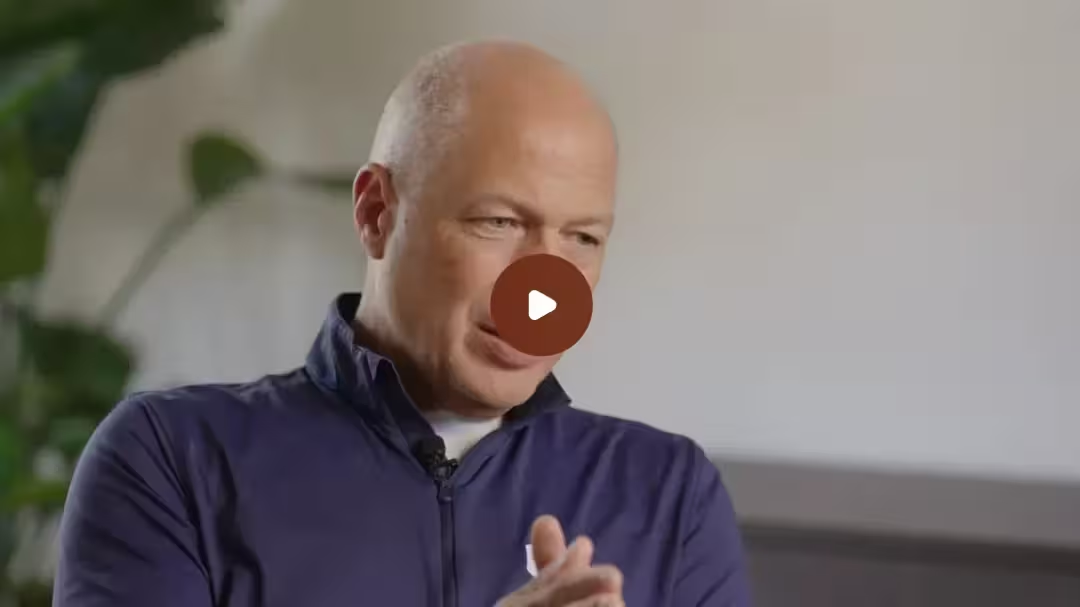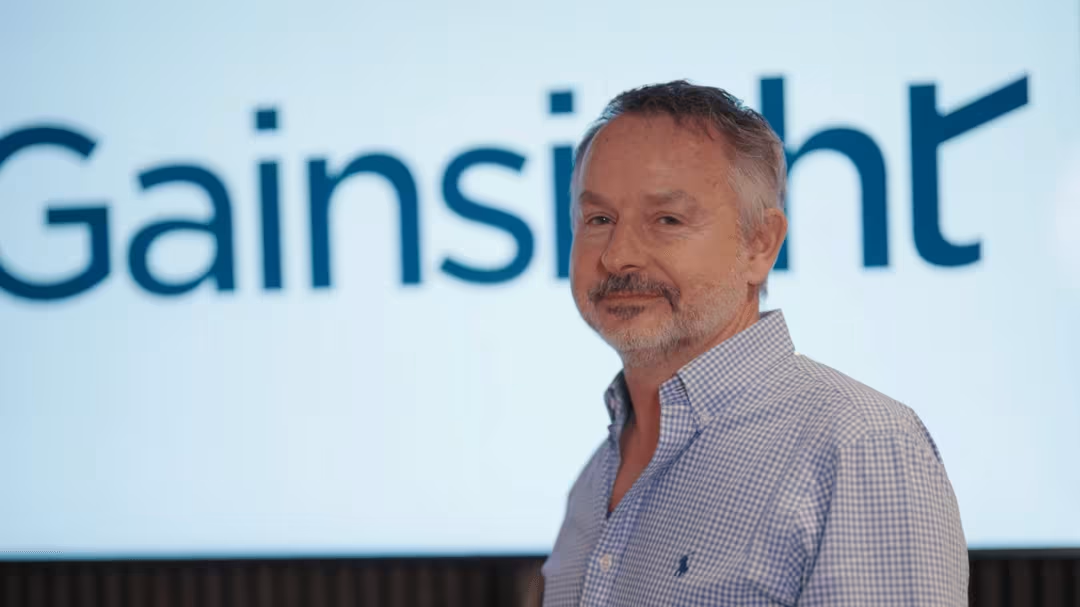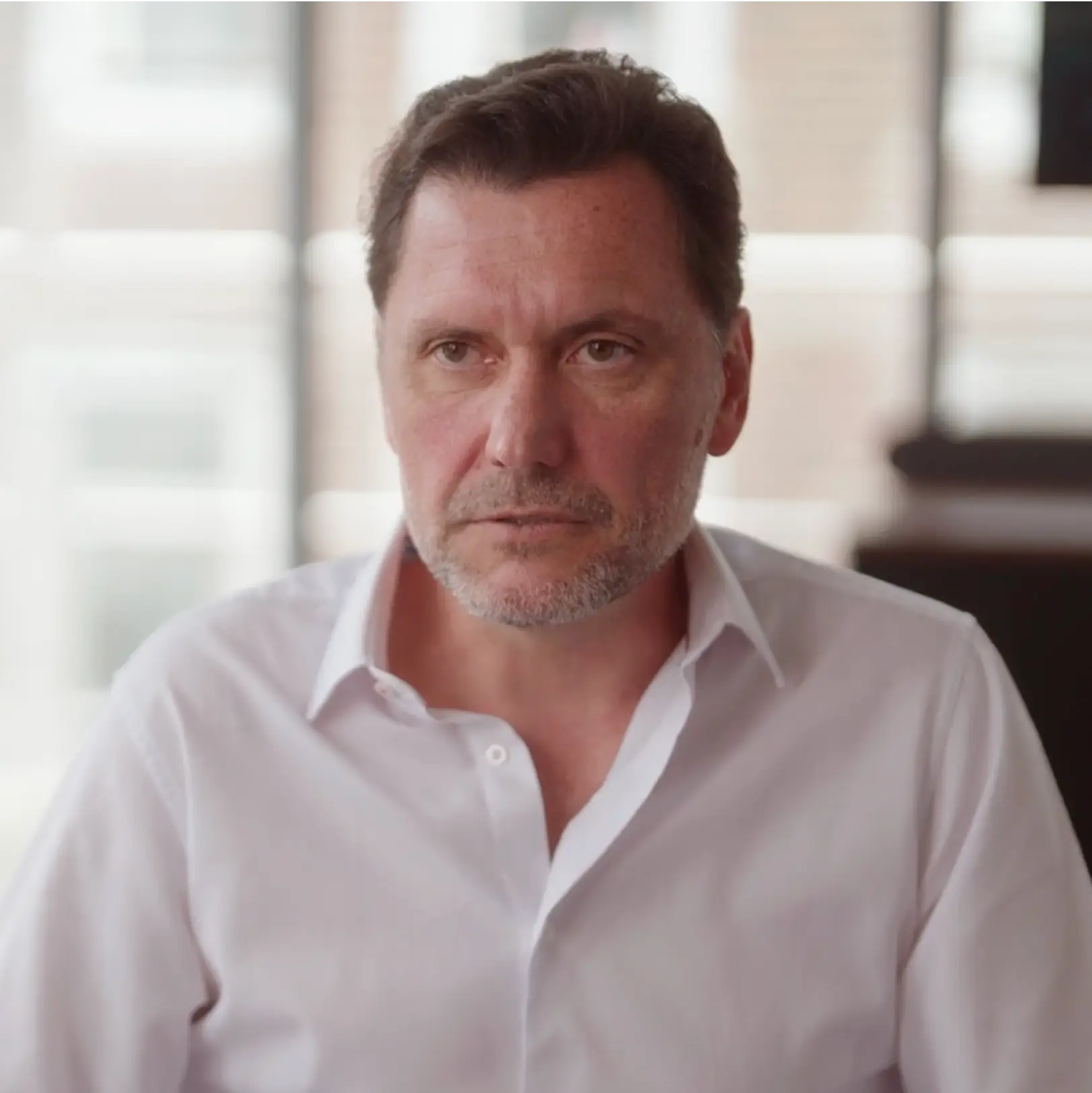The Interview
Kluster's Take
Josephine spoke with Jason Kaska, Global Director of Sales Operations at Sojern. He explores the topic of driving good relationships between teams.
Jason calls internal teams “partners”, creating trust during difficult conversations. The purpose is to drive towards a common goal. He uses the analogy of golf, if you forget the goal is to have the lowest score, you can lose focus.
He stresses that excellent communication helps with focus and understanding intention. You can have good ideas but there won't be adoption if people aren't aligned behind them.
Leaders can achieve this buy-in if they understand systems, processes and their impact. Jason believes that "trust is earned in drops and lost in buckets".
Transcription
I think the greatest form of value that every organization wants operations or revenue teams, of course, but I think the best form of value that anybody can drive is revenue.
I always go to, let's start with the end in mind, you know, a lot of times in operations teams, you're told by leadership that, Hey, you need to treat the people you're supporting, like as your customer base. Um, and, uh, and I, I agree with that. I like the sentiment of it. However, I prefer the idea of having partners in business.
I think, you know, if somebody is your customer, you know, you don't always share all the nitty-gritty. You don't share the, you know, the ugly what's going on under the hood. You're not completely transparent, but if somebody is your partner, You are, you are fully transparent, you're responsive, you're in it together.
You're also having tough conversations and not avoiding things for the sake of keeping a good face. And of course you gotta use tax and skill to make sure that you're navigating the nuances of the dynamic really well. But, um, but I, I think, you know, in addition to that, having the right mindset in that, uh, you don't point your candidate.
You know, inward, right. That, uh, everybody's same team and we're all driving towards one mission. And, uh, that's to help the company gets where we want to go. I basically, I was going to ask you a question, but I felt like you've already answered it. So like, Building a really great relationship. What do you think that shared mission is and how do you translate this mission and then make sure that everyone remembers what's actually going on to keep that focus?
Yeah, that's a good question. I, you know, I I'm, I'm not a good golfer, but I, uh, I did take some golf lessons and one of the first questions that they asked me was, you know, what is the point of. To you. And in my mind, I was like, well, to get a really low score, right? That's the point of golf. And he's like, all right, that's a good answer.
Because for a lot of people pointed golf is to go drink beer staff funds to work on their tan it's to do all the social things. And those are all good. But if you don't remember that, the main point is to get a low score. You kind of, um, we'll have the wrong motivations or even the motivations may not even be there.
So I think it's clear to begin with the end in mind. Uh, You know, the, the, uh, both teams or all the teams need to understand that this is the company's goals. This is our vision. This is how we get there. It's by having great sales strategies, go to market great solutions and great internal processes. So we don't get things bogged down.
So beginning with the end in mind, and then setting up really great, clear forms of communication. You know, I've, I've thought this for many years now. Email and text are probably some of the worst forms of communication out there. You know, this is why you do things like this, where you can see each other, you can read body language, you have a chance to, um, you know, to understand intent, uh, which intent is really, really important for teams.
So, um, you know, we, we tend to the old cliche, you know, we tend to judge others. Uh, on their actions, but ourselves on our intent. Uh, but that doesn't have to be the case as long as good communication is taking place. You know what you're trying to accomplish. Get. Um, you can develop trust and foster that.
So the frequency of meetings, the style of meetings, having a, you know, in today's day and age, whether zoom or, uh, ideally face-to-face, uh, and, and just laying things out clearly. And, um, uh, making sure that you're focused on the right outcomes will really help with. Awesome. It's kind of like if you guys have the same goal, you're assuming the same intent because you're both, both sides are trying to get to a specific location.
So that's awesome. And Jason, I know you lead quite a big team. So how, what would the process look like to keep this communication structured and regular for the leaders with. Yeah, I really liked the idea of a matrix organization. So, you know, in teams like sales ops, or just operation teams in general, you know, you, you really do need to have a organization that is, is effectively siloed.
You need somebody, that's a leader in operations, you have analysts, uh, you need a leader that understands analytics and they understand. Business intelligence solutions and all of that. But I love the idea of a matrix organization that especially if you have regional teams or global teams where you can position your, uh, resources in a way that they are directly aligned to, um, their counterparts in those markets.
So those markets feel like they have somebody that they can directly go to. There's no question on who their person is. Uh, and they can do again, going back to the things we talked about before, develop that trust, foster the relationship, and kind of understand each other better because there's more of a dotted line, uh, that directly connects them to that operations resource.
So I think that's a great way to, to position the organization for success. With the siloed leaders, to what extent can they see into other people's funnels? And what would you say the advantages of having it in the way that you're describing? What is the, why? Why do we do. Yeah, well, every organization is different.
So every sales team ever supported, uh, you know, they, somebody in that org leading the org, they think they've got a corner on how business should be done. Uh, and that's fine. And at the end of the day, uh, I don't think that there's one single sale. Uh, philosophy or go to market philosophy that this is the best one.
It's kind of like when you think about marketing content, you know, very little marketing content on a scale of one to 10 is a 10, or it's a one, but it doesn't really matter. As long as you have a philosophy and you, and is a good philosophy, it actually works. Uh, then people can learn it, adopt it, embrace it.
And get behind it. So having that matrix organization and having people that are directly connected to that regional team or that group of people, it doesn't necessarily have to be Dylon the design by region, but they have a specific resource. They can learn that philosophy of that leader in that region or the salespeople in that region.
They can have. Uh, that philosophy and they can build resources around it. They can build great reporting and they can improve, you know, CRM workflows and things like that. You've probably heard my four year old scream in the background. Uh, it was a fun, so we can, we can build those reports. We can build those.
Uh, great sales flows. And so in Salesforce or the CRMs, we can connect the dots between marketing and the outcomes at that local sales and revenue team is trying to drive because there are a lot of nuances. And at the end of the day, you can have really good ideas for how things should work. But if other people aren't willing to adopt it or embrace.
Then the idea is not going to get traction. So again, it's about positioning the organization in a way that they're going to be able to work together, to get a lot of great energy and a lot of great outcomes very quickly. You've hit the nail on the head there. So you talk about process and it's important to like get behind an idea.
It has to be a good idea of course, but you can have some flexibility. Could you tell me about. Culture to what extent would you say the other leaders need to get involved to help build a specific message? Like the CFO, CEO and his message or the CRO and their message? Yeah, it's great. I, you know, I read something that really stuck with me, that leaders earn the most respect from the organization.
You know, the further up you go when they can show. Their understanding of, um, uh, systems, processes, products, solutions, engineering, and they understand not just what their job is, but what they actually do. Some of the systems that they interact with and how those things work. And so I think first thing is, you know, it's like, uh, I heard this long time ago that trust is earned in drops and lost in buckets.
I think that one thing that leaders can do. To get buy-in from the organizations and for it to help their teams work really well together is a showcase or understanding what their teams are dealing with in both challenges, but also in the solutions that they're, they're using every day to build products or processes internally, and then relaying the outcome.
This is our revenue goal, or this is. Go to market strategy, our new market expansion idea, and then connecting the dots between this great idea and all the things you guys do and how it impacts that I think the greatest form of value that every organization wants operations or revenue teams, of course, but I think the.
Form of value that anybody can drive is revenue. And, uh, I, I have a bunch of analysts. I've got a bunch of administrative data administrative people. I've got a system admins and developers. And, you know, my, uh, one of the things I like to do is try to connect what they're doing day to day with a revenue outcome.
I want them to understand that you're not just building a report, you're building something that's going to educate and equip people to go effectively, cross sell and upsell and be consultated in selling to clients to help us drive to that 10,000 client goal that we want to achieve, or the a hundred million dollar mark that we're going to get to.
You know, I like to connect the projects that they're doing. That can really oftentimes feel cumbersome and kind of unseen to great outcomes in driving towards the company vision. Um, it goes back to what you said before about why do you play golf and it's to get the lowest score possible. If you remember that then everything you're a winner.
Okay. What about them? So is there any tech that's played a part that's helped you. Yeah. I mean, I think there's, there's so many good solutions out there today. I think our, our tech stack, when I think about RA, if I just took all the probably dozens of vendors that we work with, um, or the first ones that come to mind are of course, you know, Salesforce, uh, we leverage heavily, um, Marquetto uh, today, you know, for a client.
Uh, like sales engagement tools. We, you know, we're, we're using currently, um, some solutions like high velocity sales and new voice media who are cadencing solution for our BDRs and sellers, new voices, a soft phone solution. And they've been fine. They've been reliable resources. Uh, LinkedIn of course has been an excellent resource for mid-market and, uh, enterprise sellers there.
Uh, LinkedIn enterprise edition. Uh, is, is, uh, is great. I think they've added a lot of great features to that. It's made that a very, very, um, not just a effective tool for sales, but also a user-friendly tool and a great system friendly tool. Um, you know, one of the things that we've, I think. Operations or systems person has dealt with is integrating solutions that don't work well together.
That don't work well on a, um, a single machine at the same time. Um, and it's kinda like, you know, with. Three privacy extensions and your Chrome browser. And, you know, you have all of these things that are trying to do the same stuff. They oftentimes conflict and fail and just don't work the way that you'd want them to work.
So we really try to think about all right, if our primary tech solutions. Is Salesforce that one of the first lenses that we're going to look at all of our other solutions through his lens of, does it, is it going to be compatible and work well with Salesforce? Are we going to have a lot of licensing update issues?
Are they not a certified partner? Uh, and we're going to have all kinds of interruptions in service just simply because you know, this is a unknown, uh, applications. Uh, to Salesforce that, um, because of the latest change in certifications or licensing, they don't qualifying their service has been paused.
So, uh, that's a, that's a lens we look through. Uh, I would say one of the newer vendors that we've started exploring has been kind of exciting. It's more, it's less. A solution, more of a procurement solutions, a company called bender, the N D R terrible name grape service though, uh, where they, they take your tech stack and they, um, they own some of the negotiation, uh, and the pricing discussions with, uh, your vendors.
And they have a great, uh, solutions that are where effectively, if you have. You know, a million dollars worth of vendor tech stacks spend. They'll take that and they'll say it, we'll manage all this for you. And it's going to cost 80 grand for a year. And if we don't drive 160 grand in savings after the year we pay you back the 80 grand.
Um, so that's been a very interesting one from the. Um, from the, uh, perspective of procurement and the amount of time and energy that's devoted to that procurement is a very time-consuming thing. And I do have a background in it and the concept of. Uh, exploring all your different vendor solutions third-party third-party solutions, uh, figuring out which of them have all the features and functions you want involving all the right decision makers internally, and then, uh, going through all the pricing and contract negotiate.
Is incredibly time consuming. And quite honestly, it's a skillset. A lot of people just never developed or worked on. Uh, so, uh, we've been leveraging a company called vendor to take over a lot of that, uh, exploratory discussion. Um, so if we say, Hey, we want a solution, right? XYZ. They know the market, they know the options they'll help us find those options.
Um, and we'll go through the typical, what is your functionality? Is it meet all of our needs? We'll do all the demos and conversation with the, uh, internal stakeholders here, and then they'll own a lot of the contract and pricing negotiation. So it's just less of a lift for us. And at the end of the day, they have all the skin in the game.
They owe us they're our investment back. If they're not able to drive to X and savings. So it's a, is a, is a benefit for us in two ways. One financially we saved money, but two, we save our people a ton of time having to go through the, all the discussions, exploratory conversations and negotiate. Awesome.
That makes a lot of sense. Great name vendor. Right. So I'm really excited to ask you this question. Could you talk to me about mistakes when it comes to building really great relationships and how did you overcome it? Are there any stories or philosophies that you would think about this day? Certainly.
Yeah. Uh, you know, mistakes are just part of the process, of course, but you know, early in my career I was, um, I was an analyst and, uh, and I, I, uh, my head was really big, uh, without a doubt. Um, and I worked at a large company, very large company. It was a fortune 500 business here in the U S uh, and had 20 something thousand employees.
Uh, and a lot of the executive teams were not, were not analytical. Mine's they were business leaders. Um, but, uh, uh, in my youth, in my early twenties, I would come into these meetings where we'd be doing quarter end evaluations. And, uh, we would, uh, a lot of financial reports and I would get in there and I would debate and argue.
And, uh, and I would, um, uh, would challenge people. Uh, on what the data showed. And I really, from an early age, I adopt the mindset of like, I'm going to make data-driven decisions and I'm going to influence using data because you just really can't argue with it. And the thing is like, I oftentimes was right, but how I went about it was totally wrong.
Uh, you know, there, there's a great book out there called how to win friends and influence people. And I think my strategy was like how to lose friends and repel people at that time. And so, uh, kind of going back to what I said earlier is that. You know, I had, um, a great ideas, but because I couldn't get adoption or people on board with it, they just never had traction.
So, uh, for a couple years I just grind it. I was working really hard and, um, uh, I was, I was learning all kinds of new, new skills and ways to, uh, manage data. But, uh, I, I wasn't successful in influencing people. And so I had to learn that sometimes it's not about. You know, uh, it's not about getting, doing, doing the thing that you think is best, but rather getting progression through agreement and finding middle ground, uh, and nudging things in the right direction.
Uh, one of the recently, you know, one of the things I've taken on at my current company is, um, is commercial compensation. And we've had, uh, you know, uh, like many organizations there are, um, There, there can be a lot of variations with compensation plans and, uh, and ways to measure it. And, um, how letters are sent and formatted and all the different inputs and how they're calculated and reviewed by the sales team.
And it's almost like an infinite number of combinations. And it's almost like, uh, if it's like every organization is dead set on building an infinite number of comp plans. And so, you know, one of the things that I've been doing is I know. I have a philosophy on how comp really should work based on the research I've done based on all the books and articles and conversations I've had, I have a philosophy on how it should work.
Um, and, uh, but I knew better than to go in from day one. And try to just shift everything over to it. I knew I'd be met with opposition from leadership because it's a massive change in the organization. I knew I'd be met with opposition from the individual sales leaders, BDRs and support crew, the account managers and whatnot because it facts to them.
And again, it's kind of venturing into the unknown change is always hard, even if it's a positive change. So what I've been doing over the last 18 months is really just managing. The business in that direction. And we've made lots of great changes using small, uh, groups to, uh, to prove concept and then roll it out further and further and further.
So those are some things that I've learned for sure. Uh, organizationally, I would say. I've learned that, um, uh, that positioning a team, uh, to your external counterparts, as I mentioned for is a critical thing. Um, you know, again, you, you can have a highly skilled team that's very effective at the jobs you hired them to do.
But if you don't also position them to, uh, align to the people, they know they need to support and then instill in them, the thoughts of these are your people. Yes. If you do your job perfectly as described by the job description, that's great, but what's even better is if the subjective that the anecdotal feedback that I hear from those people that you're aligned to is extremely positive.
That's even. That's even more powerful because again, you know, you can be great at your job, but if the people you're supporting, aren't a fan of how you're doing it or the things that you're doing or don't understand what you're doing. I wouldn't say that it's a complete success. So there's some things.


.svg)
.svg)
.svg)
.svg)










